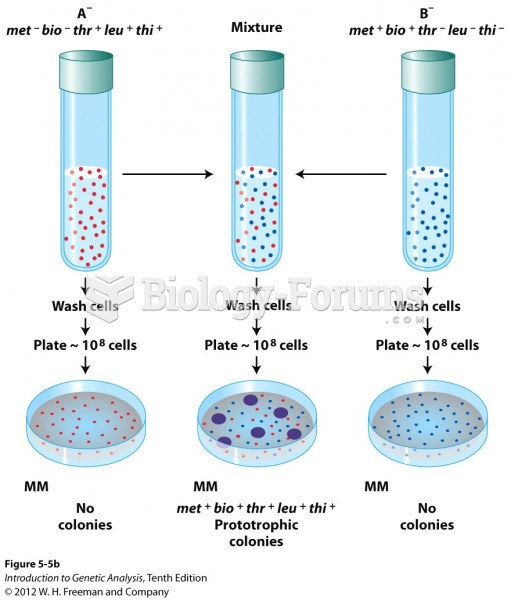|
|
|
Approximately 25% of all reported medication errors result from some kind of name confusion.
If all the neurons in the human body were lined up, they would stretch more than 600 miles.
More than 150,000 Americans killed by cardiovascular disease are younger than the age of 65 years.
The most destructive flu epidemic of all times in recorded history occurred in 1918, with approximately 20 million deaths worldwide.
People who have myopia, or nearsightedness, are not able to see objects at a distance but only up close. It occurs when the cornea is either curved too steeply, the eye is too long, or both. This condition is progressive and worsens with time. More than 100 million people in the United States are nearsighted, but only 20% of those are born with the condition. Diet, eye exercise, drug therapy, and corrective lenses can all help manage nearsightedness.







